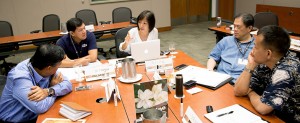
Fellows attending the Transnational Security Cooperation course (TSC 15-1) at the Asia-Pacific Center for Security Studies discuss issues associated with a cyber attack scenario.
Honing their abilities to cooperate on major international crises, 24 military and civilian security practitioners from 23 locations completed the Transnational Security Cooperation course (TSC 15-1) June 5 at the Daniel K. Inouye Asia-Pacific Center for Security Studies.
TSC is a senior executive course designed for military general officers and civilian equivalents in the security sector. Fellows include leaders in military, policing, emergency response, foreign relations, economic development and civil government. The course is five days long, with the latest iteration beginning June 1.
APCSS faculty challenged TSC 15-1 Fellows to collaborate on responses to an Ebola outbreak and cyber attacks against vital infrastructure in the Asia-Pacific region. Teams analyzed impacts on critical entities, such as economic, public health and governance sectors, and formed and documented response measures and potential solutions. These conceptual exercises were designed to promote interagency collaboration in solving local, regional and even global security-related challenges.
Exercises complemented a course curriculum that included topical discussions such as “Strategic Assessment and Planning” and “Shifting Geo-Politics.” Elective offerings included “A Safer World: Pandemic Response in the Asia-Pacific,” and “The Changing Face of Asia-Pacific Deterrence.”
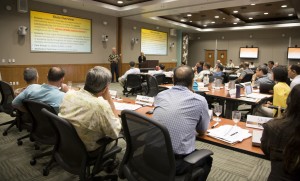
APCSS professor Dr. James Campbell leads a topical discussion on pandemic response during the June 1 to 5 Transnational Security Cooperation course (TSC 15-1).
“The course enhanced regional leaders’ capacity for strategic assessment and planning and multinational collaboration,” said course manager Dr. Mohan Malik. He added Fellows gained a “broadened understanding of U.S. policy in the region, and developed networks of action-oriented security practitioners.”
Fellows noted discussions on the impacts of resource disputes and economic change; the complexity and inter-connectedness of large cross-cutting issues such as terrorism and trafficking; and the link between security and development as key TSC 15-1 topics.
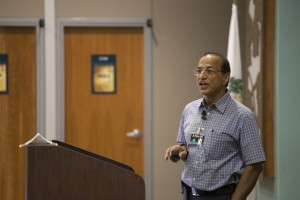
APCSS professor Dr. Mohan Malik served as course manager for the June 1 to 5 Transnational Security Cooperation course (TSC 15-1).
Maj. Gen. Syed Shah, chief instructor at Pakistan’s National Defense University, said he obtained more clarity on the Asia-Pacific region’s complexities and the course motivated him to conduct further studies with a continual focus on regional developments. He also made note of an environment that fostered sharing of perspectives among policy and strategy makers.
“Ultimately,” said Malik, “The course enabled Fellows to embrace the opportunity to think about trends and issues they may not have considered before and how they relate to national and regional security.”
TSC 15-1 Fellows came from Afghanistan, Australia, Brunei, Canada, China, India, Indonesia, Japan, Laos, Malaysia, Maldives, Mongolia, Myanmar, New Zealand, Pakistan, the Philippines, Sri Lanka, Taiwan, Thailand, Timor-Leste, Tonga, the United States and Vietnam.
-END-


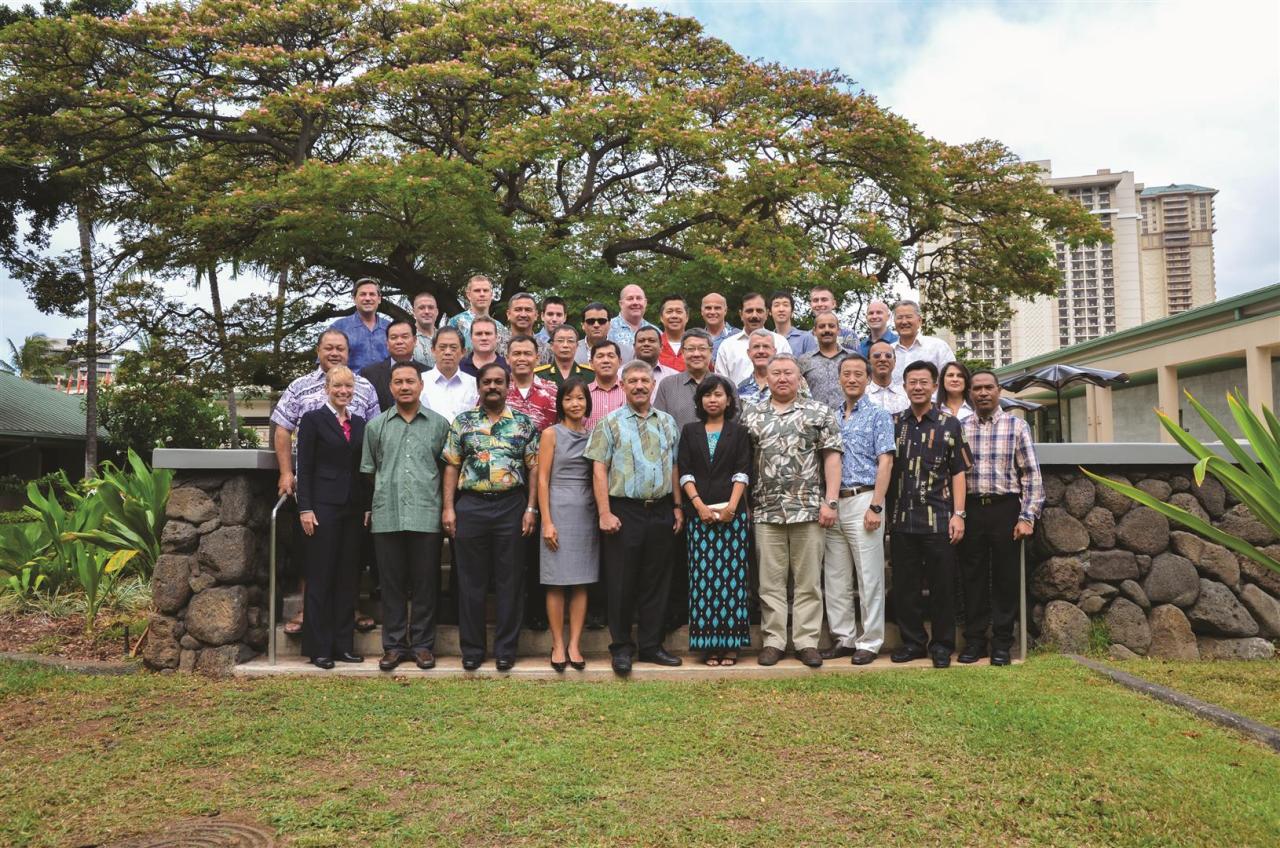
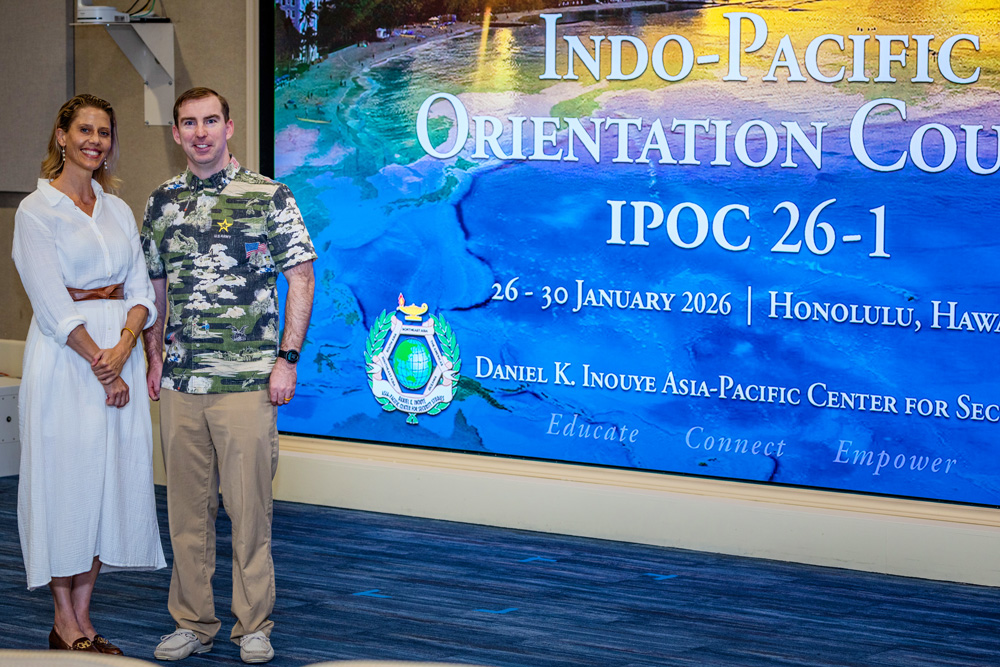
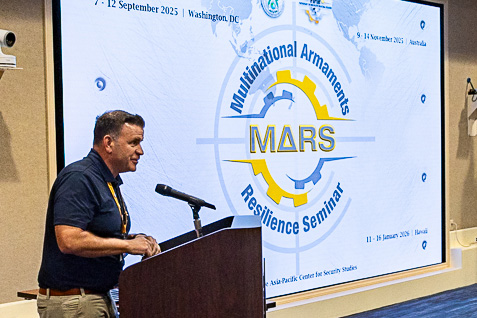
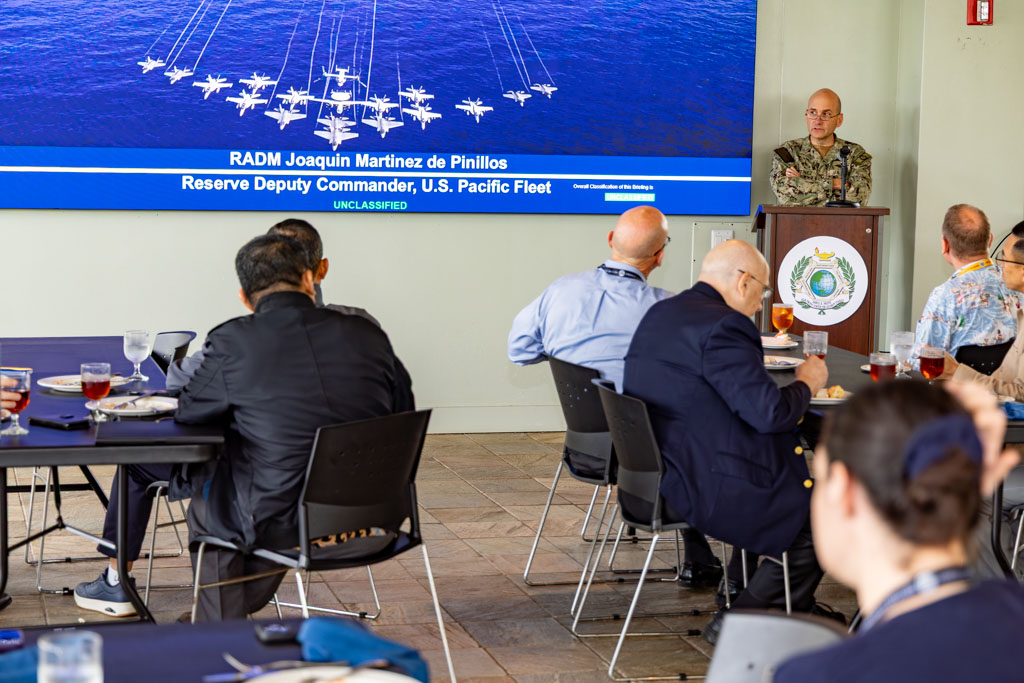




Leave A Comment